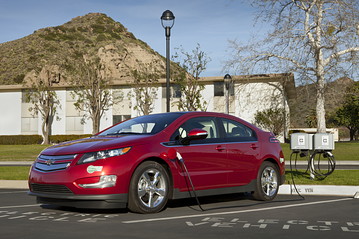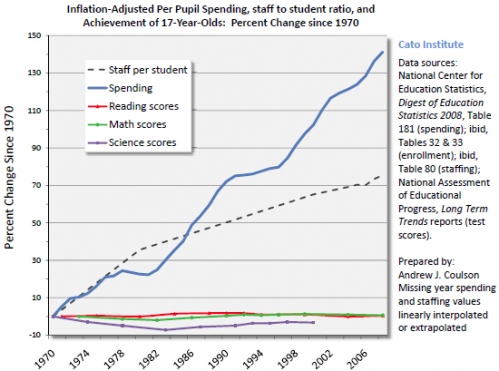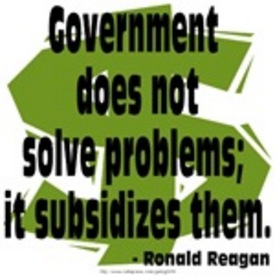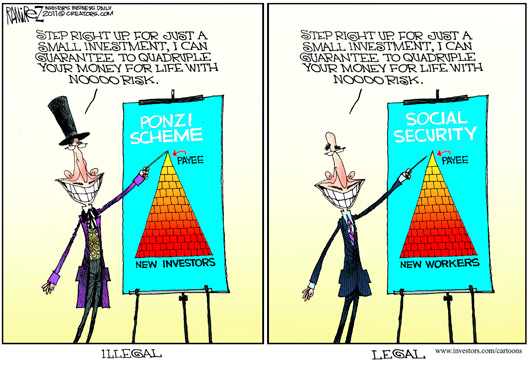http://www.bloomberg.com/news/2011-08-16/why-reagan-raised-taxes-and-we-should-too-echoes.html
On a foggy morning 30 years ago at his Santa Barbara ranch, Ronald Reagan signed the Economic Recovery Tax Act of 1981. Talking with reporters afterward, the president reveled in his legislative victory.
The law, he said, represented "a turnaround of almost a half a century of a course this country has been on and marks an end to the excessive growth in government bureaucracy and government spending and government taxing."
With the stroke of a pen, Reagan had reduced individual tax rates by 23 percent, slashed the top marginal rate from 70 percent to 50 percent, and dramatically accelerated the pace at which corporations could write off new investments. Altogether, Reagan gave taxpayers about $143 billion in tax relief over each of the next four years.
And then -- just two months later -- he asked for about a third of it back.
How did Reagan the tax cutter become Reagan the tax raiser? And how did it happen so quickly?
Reagan came to the White House with a firebrand's commitment to lower taxes. Even when his key advisers began stressing the need for new revenue, Reagan resisted. "Almost everyone in the White House joined in the work of tax raising," recalled David Stockman, director of the Office of Management and Budget at the start of Reagan's presidency, "except for the guys who wore the Adam Smith ties and, unfortunately, the guy who had to sign the tax bills."
In particular, Reagan scorned calls for raising revenue by closing loopholes. "The truth is most of what our politicians call loopholes are the legit. deductions the working people depend on to keep their inc. tax from being more intolerable than it is," he wrote in 1975.
But in the face of large and growing deficits, Reagan eventually did come around on the need for additional revenue. Even before the 1981 tax cut was on the books, many White House advisers had begun to worry about projected deficits, which were on a steady upward march from 2.6 percent of gross domestic product in 1981 to 4 percent in 1982. They would reach 6 percent in 1983.
So, just weeks after his Santa Barbara signing ceremony, Reagan floated the possibility of -- wait for it -- closing loopholes. He was careful to avoid any suggestion that he wanted a tax increase. Instead, he and his advisers asked Congress for "revenue enhancements."
Euphemisms can obscure a variety of sins. And Reagan's euphemist, Larry Kudlow -- then an official in the Office of Management and Budget -- was unrepentant. "There's no better way to sell economic theory than by the euphemistic route," he told the New York Times.
This allowed for a major tax increase, the largest in four decades, in 1982. The Tax Equity and Fiscal Responsibility Act raised an average of $47 billion in each of the four years after it was enacted.
Over the remainder of his presidency, Reagan would go on to sign a series of such increases, ultimately taking back about half of his 1981 tax cut, according to economist and historian Bruce Bartlett. The 1981 legislation marked a watershed in federal taxation, capping an era of tax cuts and starting a new one of increases. As economist Jerry Tempalski has noted, of the nine major tax laws enacted from 1968 to 1981, six reduced federal revenue. By contrast, nine of the 11 major tax laws introduced from 1982 to 1993 increased revenue.
The dramatic reduction in federal revenue resulting from the 1981 act made future cuts increasingly difficult. And one of its provisions would prove especially expensive in the years to come. The law had indexed tax brackets, adjusting them for inflation. This change almost eliminated "bracket creep," in which taxpayers were pushed into higher brackets by inflation, rather than changes in real income. For decades, bracket creep had produced steady -- but hidden -- tax increases on Americans. No longer would these automatic tax hikes give lawmakers money to burn. Or to return through tax cuts. Indexing was key to ending what C. Eugene Steuerle, an economist and senior fellow at the Urban Institute in Washington, has called the "era of easy finance."
But if the Economic Recovery Tax Act put the nation in a fiscal straitjacket, it also prompted newfound interest in tax reform. Reagan's late conversion to loophole-closing in 1982 would prove a model for future tax increases.
Rates did creep upward in the years that followed, especially during Bill Clinton's presidency. But closing loopholes -- or reducing tax expenditure, as the wonks like to say -- has become a rich source of new revenue.
Thank goodness for small miracles. Removing special favors from the tax code is a win-win, both for revenue-starved lawmakers and for average taxpayers. Sure, many tax-expenditure plans are essentially middle-class spending programs, subsidizing everything from home ownership to health care.
But subsidizing things through the tax system -- which President Barack Obama infamously but accurately described as "spending in the tax code" -- is inefficient and unfair. It often delivers benefits to the wrong people, rewarding the rich more than the poor.
And it prompts lawmakers to overspend. Largely shielded from the sort of scrutiny that accompanies direct spending, tax expenditure builds big government on the sly. That's why conservatives should oppose it.
Reagan, to his credit, learned that lesson quickly. Unfortunately, his conservative descendants seem to have forgotten it.
(Joseph J. Thorndike, a contributor to the Echoes blog, is the director of the Tax History Project at Tax Analysts and a visiting scholar in history at the University of Virginia. The opinions expressed are his own.)
To contact the author of this blog post: Joseph J. Thorndike at
[email protected].
To contact the editor responsible for this blog post: Timothy Lavin at
[email protected].


















